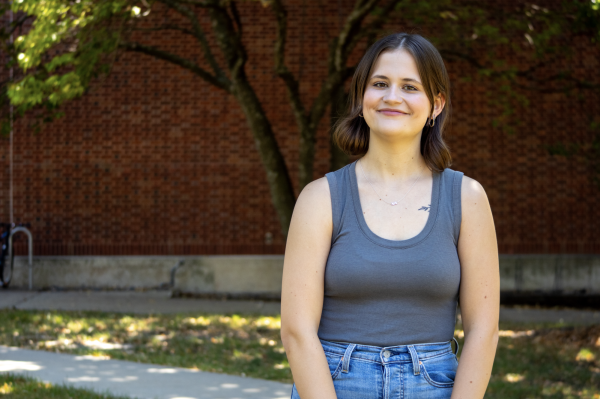Under Drake University’s “The Ones” campaign, the University will be developing a Digital Proficiency Platform to focus on becoming “the premier institution of higher education in integrating the liberal arts with analytics and technology.”
“I think that the idea of the overall proposal is that we want to develop students who are sort of leaders in technology in a way that allows them to sort of help organizations that they work with be strategic in how disruptions in technology can be utilized for those organizations’ benefit,” said Eric Manley, associate professor of computer science and co-director of Drake’s data analytics program. “The idea would be that somebody who is proficient in technology, digital proficiency would be able to help drive those changes, whether they were motivated by some kind of crisis like the pandemic was or whether they were simply motivated by changing technology.”
According to Manley, the main goal of the Digital Proficiency Platform will be partnering with external organizations to work on problems related to data analytics. This will involve changing the practices of the organization to better utilize technology.
“One of the goals is trying to get that administrative help, help find those partnerships, help work out all of the red tape and details that goes along with that so that we can give projects to students and faculty and they can maybe work on that as a summer consulting project, almost like an internship,” Manley said.
One focus within this initiative will be increasing diversity among technology majors at Drake. The Inclusive Scholars of Digital Proficiency is one of four scholarship programs embedded within one of the campaign’s initiatives that include $5,000 renewable scholarships for five students, according to Drake President Marty Martin and Vice President for Advancement John Smith.
Martin said that the “core focus” of this scholarship program will be to increase diversity in technology majors. The program invites mathematics, mathematics education, computer science, data analytics, artificial intelligence and information systems majors to apply. It includes regular meetings with a faculty advisor and the ISDP community, as well as professional development and community engagement opportunities.
The program gives preference to students who “identify as part of an underrepresented group in technology — including women, students of color, students with disabilities, and students who are LGBTQ.”
According to “The Ones” website, “Supporting Drake’s Educating for the Digital World initiative will move us toward our goal of becoming a campus where women and students of color make up at least 50 percent of the students majoring in technology through scholarships, recruiting initiatives, and peer mentoring opportunities.”
In addition to increasing diversity, this initiative will include several specific steps on campus. According to Manley, Drake hopes to raise funds for an endowment to attract higher-profile professors in technology areas.
“Externally, we’ve known for a number of years that [in] businesses and the public sector, state and federal agencies, for example, that there is a robust advantage for a digitally proficient workforce that is capable of using increasingly sophisticated technology, like artificial intelligence systems or data analytics programs, and [for] using those tools in an ethical way that critically balances the needs of a business with our societal, ethical good,” said Keith Summerville, another Drake professor involved with the initiative.
According to Manley, funding for this project will go through the University Advancement Center and will largely come from companies who are interested in developing talent at Drake to hire later on or from philanthropy. The university also plans to create more collaborative areas on campus to be a workspace for problem solving in the world of technology.
“We have visions for new classrooms that would [be], not just classrooms, but meeting spaces that allow for groups of students to work on technology problems in sort of collaborative and innovative ways so [we have] some spaces that are maybe more like high-tech work spaces than like a classroom,” Manley said. “But nonetheless, a course could work there or a summer internship-type program could use that space.”
According to Manley, this project will focus on students with technology-related majors and minors, but it will also be beneficial for all students.
“How can we utilize what’s sort of on the cusp of what we can do with technology to do the things that we do better?” Manley said. “The idea would be that all Drake students, hopefully, are being prepared in such a way that they are able to take on those challenges.”
Andrew Kennard contributed reporting to this story.








